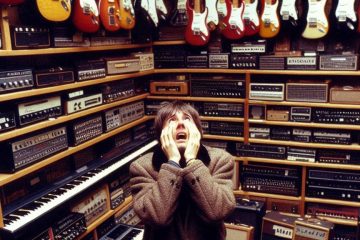I mix and master a lot of songs where clients are recording vocals at home. Can I be honest, the equipment they are recording with is generally not the biggest issue.
I recently wrote a post about recording vocals at home that win Grammy’s. That is worth reading first if you haven’t.
A large part of getting great vocal recordings at home is attention to detail. You may not have the expensive equipment that a studio has but you can execute your performances at home like you’re recording in one.
When you think about it, a studio is expensive because of all the gear in it and maybe because of the person recording you. If you got the opportunity to record your vocals at Blackbird in Nashville the 20K+ mic through the 50K+ vocal chain isn’t going to change your performance.
You have to deliver an exceptional vocal performance to get an exceptional recording.
How To Record Million$$ Vocals At Home
Here are some things I hear when I’m working on mixes for all genres of music that are the 5 – 10% improvements that will transform recording vocals at home for you:
Do Multiple Lead Vocal Takes & Comp Them
Chances are, you’re probably not a one-take Sinatra. You probably don’t have hours a day to practise either. That’s why it makes sense to leverage the amazing technology you have to capture the gold in your voice. This is how professional vocalists work too.
This will give you a dynamic, genre appropriate and, most of all, tight vocal take. Some people think this might sound “over produced”. Trust me, even in the most organic sounding music it doesn’t sound over produced and it makes sense.
Sing The Whole Phrase
Each phrase you sing has a beginning, middle and end. I find a lot of vocalists seem to focus on the middle and the start and end of the phrase is left to chance.
Scooping up to that first note or falling off the last notes of the phrase sounds amateur. This is one aspect of recording vocals at home that will separate your performance from 80% of other performances.
Tight Double Tracks
One of the things I will add to most mixes if it’s not recorded is a subtle double tracking effect to the vocal at certain places in the song. However, I always prefer a real vocal double if I can get it.
Some people haven’t heard of double tracking vocals, if that’s you, it’s worth learning to record them really well.
Some people don’t like the sound of double tracked vocals. That’s probably because they’ve never recorded them properly and heard them mixed into the track well. Give it another try you can always mute them in the mix.
When you’re double tracking, get them tight. Practise with yourself until you get it spot on. It matters.
I wrote a blog a couple of years ago describing a process for recording amazing vocals if you want a step-by-step approach.
The Takeaway: The reality is that all the best gear in the world isn’t going to make a singer sound better than their best take. You have available a resource which is far more valuable, time. If you take time to improve your vocals and vocal takes this will give you an exponential return in improvement.



0 Comments